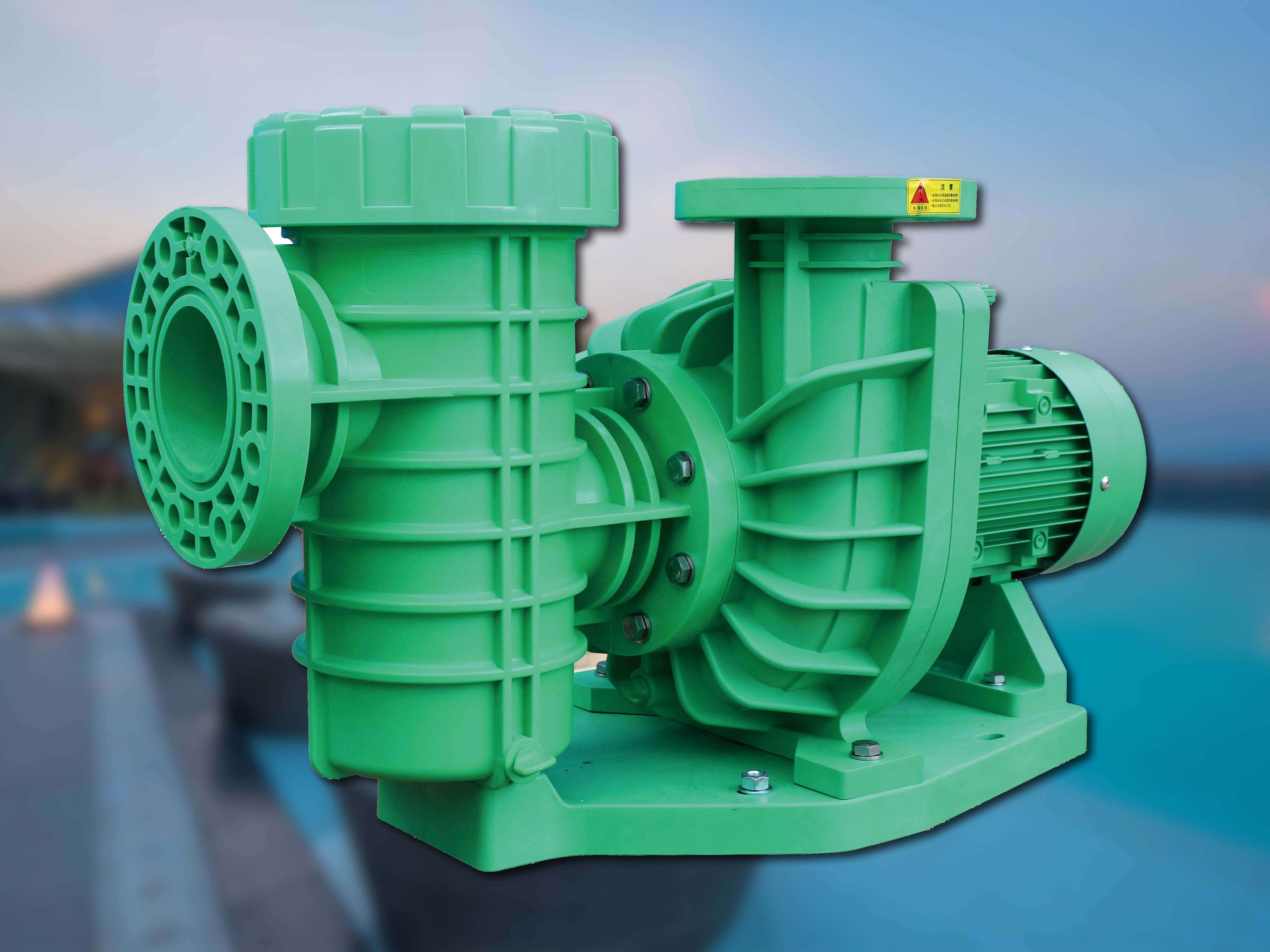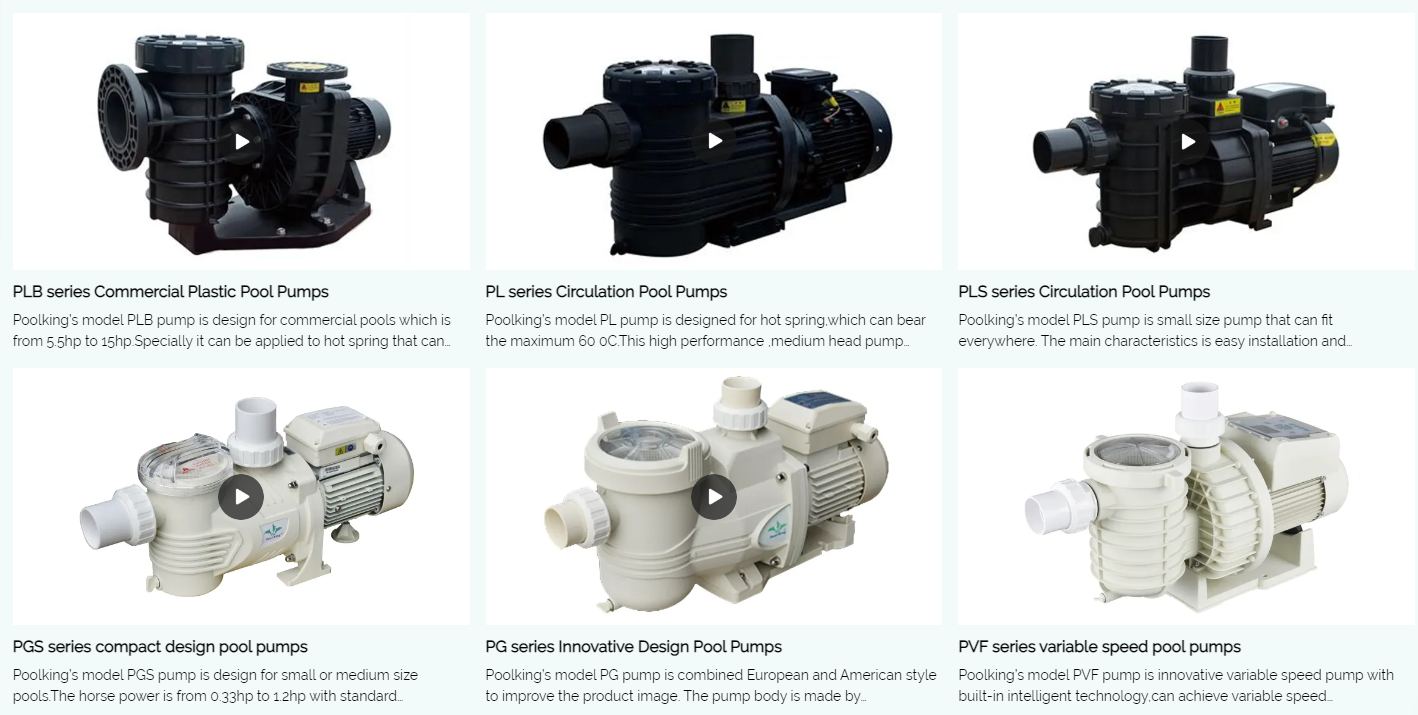Letting your pump run dry for too long can lead to irreversible damage not only to your pool pump but also to the surrounding mechanism. So how long can a pool pump run without causing damage?
Poolking, your best swimming pool equipment manufacturer and supplier with more than 20 years experience. ![]() Email: sandy@poolking.co
Email: sandy@poolking.co
How Long Can a Pool Pump Run Without Water?
2023-03-30
Your swimming pool pump should be pumping water at least 8 hours a day, every day. You may decide to run your pool pump during the day or night, but you should avoid letting your pool pump run dry. A pool pump that continues to run without pumping any water from your pool is said to be running "dry".
Letting your pump run dry for too long can lead to irreversible damage not only to your pool pump but also to the surrounding mechanism. So how long can a pool pump run without causing damage?
How Long Can A Pool Pump Run without water?
Most pool pumps can run for around 1 to 4 hours without water before they cause any damage. This, of course, depends on the size of the pump, the temperature of its surrounding environment and the quality of the pump you have. If you choose a reliable pool pump from Poolking, you may be able to run it for up to 12 hours without any damage. A poor pool pump may break down in as little as 1 hour!
Is It Safe For Your Pool Pump To Run Without Water?
No, letting your pool pump run dry for long periods can lead to costly damages. Your pool pump motor runs at very high speeds to push out large volumes of pool water. If your pump runs dry, this motor can start overheating any water that is left behind. This water can quickly turn into steam, which, paired with the high internal temperature, can cause the plastic compliments of your pump to melt.
Sings That Your Pool Pump Is Running Dry
There are many signs that may indicate your pump is running dry. You may notice your pump giving off an unnatural humming sound; you may notice it running hotter than normal, and you may notice a drop in water return or leakage from the sides of the pump.
Prevention is always better than cure; therefore, you should watch for these signs. The main reason why your swimming pool pump starts to run dry is that it no longer has any prime water in the line. Instead, it starts to pump air.
To make sure your pool pump isn't pumping air:
1. Make sure your pool water levels are above the swimmer
2. Make sure the skimmer basket is clear of debris that may potentially block the flow of water
3. Check the hoses of the pool pump to make sure they aren’t leaking
4. See the pump lids and rubber gaskets are properly sealed
What To Do If Your Pool Pump Is Running Dry?
Once you notice your pool pump running dry, you should immediately turn it off. Look for any signs of damage it may have caused to the swimming pool pump system, and have it repaired.
The next time you turn on your pump, you will have to prime it first. Priming your pool pump will remove any air pockets from forming inside your pump.

Final Thoughts
While the time it takes for a pump to get damaged when running without water varies, it should be avoided as much as possible. A pool pump that runs dry for too long can lead to costly repairs in the future. To avoid this, always keep an eye on your pool pump and regularly check for signs of air leakage.
If you want to learn more about swimming pool pump, here are some answers to your questions:
How To Maintain The Swimming Pool Pump?
Why is the Pool Pump Not Working?
How To Prime Swimming Pool Pump?
What Should a Pool Pump Pressure Be?
ReviewsNumber of comments: {{ page.total }}
I want to comment?
{{item.nickname ? (item.nickname.slice(0, 2) + '*****') : item.source === 1 ? 'mall buyer' : '--'}}
{{item.comment_time}}
Review in the {{item.country}}
Reviews
Merchant
{{replyItem.nickname ? (replyItem.nickname.slice(0, 2) + '*****') : replyItem.source === 1 ? 'mall buyer' : '--'}}
{{replyItem.parent_nickname ? (replyItem.parent_nickname.slice(0, 2) + '*****') : '--'}}
{{replyItem.is_merchant_reply === 1 ? replyItem.reply_time : replyItem.comment_time}}
Review in the {{replyItem.country}}
Reviews

No customer reviews
recommended for you
no data
Get in touch with us
QUICK LINKS
If you have any question,please contact us.
Contact: Sandy
Email: sandy@poolking.co
Sales Hot line: +86-20-34982303
WhatsApp:+86-13922334815
Add: No. 80, Danan North Road, Dagang Village, Dagang Town, Nansha District, Guangzhou City (temporary business premises)
Language
Copyright © 2025 Guangdong Poolking filtration equipment manufacturing co. Ltd. - www.poolking.co All Rights Reserved. | Sitemap
Contact us
Leave your inquiry, we will provide you with quality products and services!
Contact us
whatsapp
Contact customer service
Contact us
whatsapp
cancel
Customer service



























